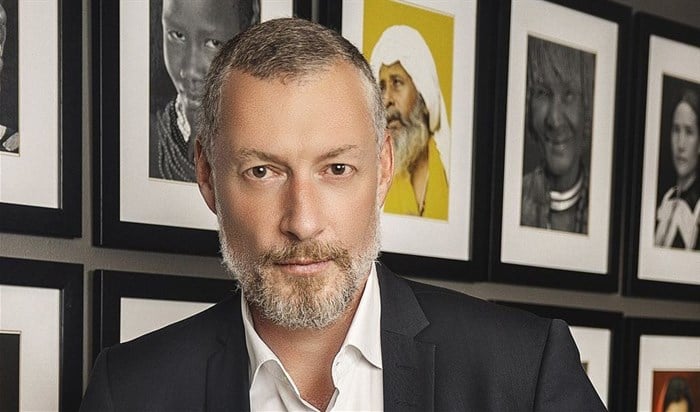






As we face the new year, I’ve come to realise that we, as leaders, will have to take things to a new level to continue leading in uncertainty. I spend a lot of time trying to understand the needs of our clients, learning about their methods of overcoming disruptions, sharing what I’ve learnt over the years, and – of course – learning as I travel across the globe. This year, the challenges faced by our clients had one thing in common: everyone had to survive (never mind lead and thrive) in a status quo of chaos. Little did Ronald Reagan know the relevance of his idea of status quo:
The status quo, you know, is Latin for 'the mess we’re in'.
With the pandemic, war in Ukraine, relapse in the global economy, social crises caused by rising oil and other commodity prices, along with the prevailing global pessimism, it is clear that we are stuck in a cycle of crises. In the world of business, additional trends further impact the status quo. These include accelerated digital transformation, resistance to globalisation, evolving customer demands, the increasing need for ESG efforts, the Great Resignation and quiet quitting. We have been hit with one disruption after the other. So, it’s only natural for a term such as “permacrisis” to have found its spot in the dictionary. As Alex Beecroft, managing director of Collins Learning, said, permacrisis “…sums up quite succinctly how truly awful 2022 has been for so many people.”
How, then, do we understand the leadership trends that will develop in a permacrisis world? Typically, strong leaders in a crisis will focus on long-term strategy, ensuring that company values are held intact, and prioritise the needs of customers and employees to maintain positive public perception during the time of the crisis. After all, wisdom teaches us that we should never waste a good crisis. But what if the crisis does not end?
Our only option is to find new ways of adapting – in our attitudes, in how we engage others, and in how we find smart ways to do things.
Leadership development will be in high demand in 2023. There is a greater demand for authentic and servant leaders. These are leaders who are honest, transparent and self-aware, as well as leaders who recognise that they are there for others and not the other way round. This type of leadership builds trust and, according to a study published in the Leadership and Development Journal, is the strongest predictor of job satisfaction, positively influencing the work climate, and ensuring greater productivity and higher levels of engagement. In times of crises, it is vital that employees trust their leaders and stay engaged.
I am once again struck by how central Dr. David Rock’s SCARF model is to engaging those you lead in the midst of any situation. Even in permacrisis, people need to be acknowledged (Status), know what to expect (Certainty), have flexibility to adapt where needed (Autonomy), feel connected to others (Relatedness), and be treated fairly (Fairness). Using this model as your guide, you can effectively support your people to run toward the permacrises, switching them on to embrace the challenges and utilise the opportunities.
Related to the above is the importance of emotional intelligence. As we now know, emotional intelligence is a fundamental leadership attribute for shaping an engaged and high-performing organisation.
Emotionally intelligent leaders are able to self-regulate their own emotions while empathising and connecting with others, ie. they know how to make people feel safe and switch people on.
In times of disruption, an emotionally intelligent leader is able to remove fears, provide direction and purpose, and be present with their teams to help them navigate diverse challenges. They create a psychologically safe space where team members are encouraged to speak up, take risks and ask for help. Skills such as self-awareness, empathy, active listening, motivation, and social skills are at the foundation of a great change leader.
Over the past year, we have continued to experience the Great Resignation and quiet quitting. With the pandemic compelling us to rethink our priorities and many employees disengaging, the talent challenge is continuing to grow. This has, and will continue to, alter the workforce.
Leaders need to be agile and, in order to attract and retain talent, ensure that they provide a work environment that is attractive to employees. Flexibility in terms of time and workspace, while ensuring a safe, inclusive culture, will increase your chances of holding on to your good people. Job fulfilment, learning opportunities, flexibility, as well as diverse and value-oriented work environments, have become requirements for many job seekers.
Crises test our faith in the future. When our vision – our promise to our employees – is not trusted, we risk disengaging our employees and losing valuable talent.
The psychological term “holding” describes the way a person (such as a leader) contains and interprets what happens in times of uncertainty. As leaders, we have the responsibility to soothe distress (contain the crisis) and help others make sense of it (interpret the crisis) to gain their trust in our long-term vision. If leaders are unable to offer reassurance and orientate their workforce, anger, anxiety, and fragmentation will occur and, inevitably, this will fuel phenomena such as the Great Resignation and quiet quitting.
In the year ahead, there will be a greater focus on sustainability and security. Organisations will have to expand their ESG efforts. This will become a necessary precursor for customers, investors and employees. Stakeholders are investing in organisations with the right environmental and social credentials – looking for the give-back that an organisation provides.
In addition, we are seeing an increase in conscious consumers who prefer to buy local, ethical and environmentally friendly products. During times of crisis, organisations cannot afford to alienate investors and consumers and now – more than ever – efforts are needed to ensure sustainability.
For businesses to remain competitive in the volatile market, they will need to continue investing in technology. Technology enables improved communication, new opportunities for collaboration, increased efficiency, and better decision-making. This feeds into the changing business landscape allowing employees to engage remotely.
In addition to the above, consumers are turning towards immersive customer experiences. Experience, in addition to quality and price, will lead consumer trends for 2023.
Appointments of Chief Experience Officers (EXOs) will become the norm to ensure that the overall experience of an organisation’s products and services are up to standard, thereby differentiating them from competitors and ensuring brand reputation is intact.
While crises are inevitable, poor leadership (or leadership that does not adapt) is not. By adapting new leadership styles, investing in emotional intelligence, creating engaging work environments where your employees want to stay, keeping focused on the future, prioritising ESG efforts, and staying abreast of technological advancement, leaders will be able to mitigate the impact of disruptions. In turn, they will emerge victorious from the permacrisis, which will end – eventually. Or not.
